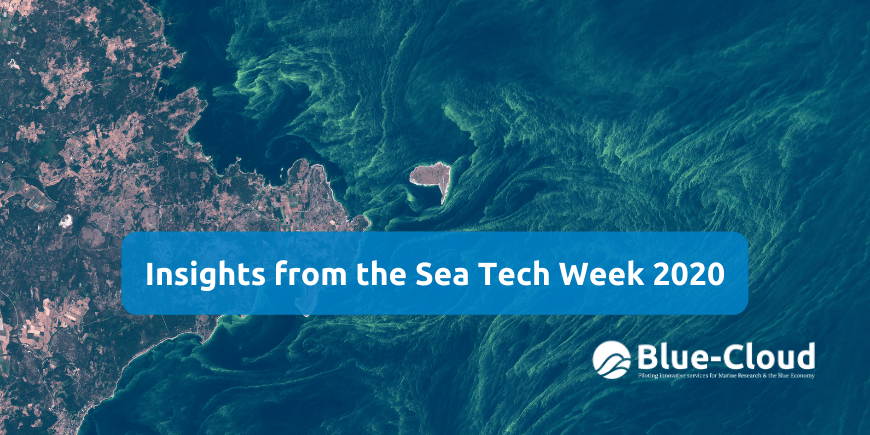For more than 20 years in Brest (France), the Sea Tech Week has forged and strengthened international collaboration and business in marine science and technology. The Sea Tech Week mixes conferences and professional exhibitions from marine technologies (vessels and submersibles, satellite, sensors…) to data applications.
In 2020, the Sea Tech Week was organised in virtual mode (with both e-conferences and virtual exhibitions) in order to continue to be a pivotal cross-disciplinary platform bringing together researchers, businesses, representatives from institutions and students.
Among the conferences, in the scope of “The future of observations from seabed to space” several sessions were dedicated to marine data management, data processing and data sciences such as:
- Big Data and Deep Learning
- Platforms and data management
- Open access to marine observation data: Principles and Practices
The Station Biologique de Roscoff (CNRS /Sorbonne University) and IFREMER organised this edition jointly in partnership with leading actors in the marine research landscape: EMODnet, Copernicus Marine Environmental Monitoring Services (CMEMS), SeaDataNet AISBL, SeaDataCloud, VLIZ and the French Research Infrastructure Data Terra/ODATIS (many of which are also involved in Blue-Cloud). It was dedicated to Open Data, FAIR principles, interoperability and data stewardship.
Sharing best practices for marine research data
Open and easy access to data appears to be a key issue because addressing global-scale challenges involving the marine environment relies on acquiring a comprehensive understanding of all of its compartments (from the sea floor to the atmosphere). Building integrated multi-scale products and models presupposes that the data collected through the observation of these compartments is available and interoperable.
A wide variety of fields - physics, chemistry, geology, biology and many others - are involved in marine observation. Each of them has its own best practices regarding data description, archiving, quality control and publishing. This calls for interdisciplinary initiatives to reach a sufficient level of interoperability and thus leverage the potential of cross-discipline data products that will be made available to the scientific community.
This conference explored the present status of marine data exchanges and processing, advising the initiatives conducted in France (Data Terra Research Infrastructure for geosciences data) and in Europe such as EMODnet, CMEMS, SeaDataNet AISBL and the coordination of these initiatives within the Blue-Cloud project.
The five Blue-Cloud demonstrators are tackling these challenges building on existing resources and showcasing a multidisciplinary approach that will benefit the marine research community, as well as facilitate evidence-based decision making.
Discover the Blue-Cloud demonstrators!
